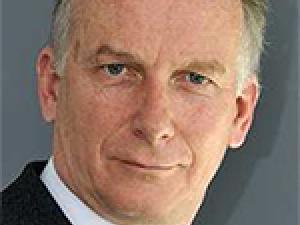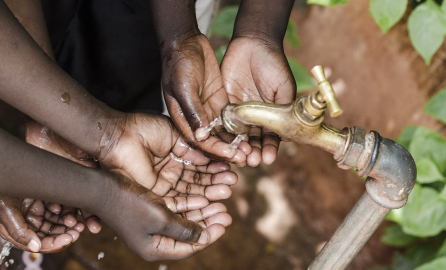Over the last three years, Marcus Cornaro worked as Deputy Director General for International Cooperation and Development (DG DEVCO). Before taking up his new post as Head of the European Union Delegation to South Africa, he spoke to capacity4dev.eu about his views on development, the problems we’re facing today in the neighbourhood region, the migratory crisis and his hopes for his new post.
|
After 17 years working for the Austrian Foreign Service, which included postings in Mali, Zimbabwe and Uganda, Marcus Cornaro joined the European Commission (EC) in 2000. He worked in Brussels for DG RELEX (the European Commission’s external relations department) for three years, before moving to Hanoi to take up a post as Head of the EC Delegation to Vietnam. Upon returning to Brussels in 2007 Cornaro worked as Director for the European Neighbourhood for five years, covering Eastern Europe, the Middle East and North Africa. In August 2012 he took up the post of Deputy Director General of DG DEVCO. |

Marcus Cornaro
Capacity4dev (C4D): You worked as Deputy Director General of DEVCO – the European Commission’s development arm for three years. How has this experience affected your views on development?
Marcus Cornaro (MC): There’s one element which I feel strongly about and that is how we, the development community, can deal better with crisis and chaos. We all sort of sit and think in linear progress, but more and more we see that – not just in the neighbourhood but in many parts of Africa and Asia – invariably progress is not linear. Yet the whole way we are set up, starting with the log frame which is a linear sequence, the way we try to predefine results – which we then have to report against – prevents us from actually responding better to the invariable ups and downs of progress.
This is something I would hope that we here in DG Development – but also more broadly in the European Union – can advance the thinking on, and link to some of the ongoing interesting exchanges that we see in academia on this subject.
The one catch word would be that we should look at having a compass rather than a roadmap. We are too much glued to these little steps and processes rather than having a broader vision of direction. So we should improve on how we manage change, how we support change, how we support transformation, but also be already able to anticipate that invariably there will be ups and downs. So from a conceptual point of view, but also from someone who has seen that if you want to have operational results on the ground you need to be more responsive and have a better redefinition of the various intermittent intermediate steps. And again not be glued too much to having predefined results in all details.
C4D: How could you unite this view with what other donors and partners are doing, not just development partners but also humanitarian actors and peace builders?
MC: The one obvious answer to that would be the proposed European Union Trust Funds, which we have more recently had the possibility to do. There’s one starting up in Syria, we had a first one tested here by this DG in the Central African Republic, and we are just about to propose a major one linked to the migratory pressures both for the Sahel and the Horn of Africa, which we hope to get adopted by the Valetta Summit in November.
The beauty, in a sense, of the EU Trust Funds, is to do precisely that. It first allows the European Union funding instruments to all be pooled into one broader management basket, including contributions from ECHO [the European Commission’s Humanitarian Directorate], but also from the Instrument contributing to Stability and Peace, and of course the larger European Development Funds (EDF) and development cooperation money; all managed by the same group and enabled under the same principles.
Then invariably having a strong emphasis on linking relief and rehabilitation. But also being able to go from rehabilitation back to relief, should one or the other aspect slip.
The second aspect is that EU Trust Funds are meant to be open to member states and third donors.
So for the time being this is the big innovation for which I’m crossing my fingers. For the EU institutions the first experiences are positive. We have to admit that we have high hopes that it will work, but the proof of the pudding is in the eating. In this case the proof will be that we are able to show that we generate more interesting larger programmes; that we can execute them more rapidly; and also that we can be more responsive – as these developments are likely to also unfold in a non-linear fashion.
C4D: You used to be the Director for Neighbourhood. How do you feel about the problems that we’re seeing today in that region?
MC: I was in charge of Neighbourhood in my previous function; no longer for the last three years. There is a sort of a separate review currently ongoing, which I have not directly overseen. What I am overseeing though – and where I am strong to contribute – is notably on the southern Neighbourhood and its link to the rest of the African continent.
One of the results I expect to see emerge from the current crisis is that we do get a different look at the sort of continental interactions between regions. Again the EU Trust Fund proposed for Sahel, Horn of Africa, should also include neighbourhood funding so that you can have a clear linkage between what we can do in the Sahel belt with programmes in the Neighbourhood.
There are two main points: the first Neighbourhood programmes started from a very linear perspective. We involve them closer to the Neighbourhood this is linear progress and then gradually each year they will come closer and closer to the European Union. But we did not anticipate the big back sliding that the collapse of some of these countries led us to. So this is currently under redefinition towards Europe.
As we redefine the role of the Neighbourhood towards Europe, we also need to redefine the Southern Mediterranean as the northern part of Africa. This will have an impact on how we design the pan-African programmes. I suspect it will also have an impact on the revision of the EU Africa strategy, and also – as we revisit in the years to come – the current larger EDF and ACP [Africa, Caribbean and Pacific] framework.
We do need to recognise – and this is part of a rather current controversial international debate, where my new post South Africa is quite vocal but also some other countries – that they fear we are not recognising enough the sheer magnitude of migratory flows within Africa. Seen from an African perspective, the flows to Europe are a rather small percentage of the problem, and they do not understand fully the hype this causes.
Inversely we also make the point that Africans cannot put the blame, the onus, on Europe alone to take care of African refugees. There we have very strongly – and I’m quite pleased that I was part of that debate – put the responsibility back on the African countries, but also on the African Union. So indeed when everyone is scrambling for an EU summit it’s also interesting to see to what extent the African Union is trying to come to grips with the fact that the Africans are now fleeing en masse, and at high cost to their own life.
While this is disconcerting from a developmental perspective, from a medium term perspective I suspect this will be quite enriching in redefining some of the ways we need to operate. And I do see us as a big DG, as a big actor, within the European Union framework, and also hopefully leading some of the discussions and debates.
C4D: During your time as DDG you oversaw several international conferences around crisis and conflict situations – such as Mali and Somalia – as DEVCO brought the different players to meet in Brussels.
MC: Well that was enormously gratifying I must say. I joined this DG when it was still AIDCO, when it was the implementing arm of a more diverse set-up. And now it has grown into DG Development with a lot of development policy.
In fact one of my opening bids when I applied for the job [of Deputy DG] was my ambition to make sure that we could reinforce the so-called convening power of Brussels on larger international themes; to give it some concrete meaning in the international development scene. And this indeed has worked well. The Mali conference stands out, but similarly on Ebola we did a big sequence of conferences, same on Somalia, but also many other events.
And there’s two or three things which stand out when I see where we first came from three or four years ago.
First we gained a lot of credibility vis-à-vis international actors. How we were both able to run this logistically, but also – and I think more importantly – in terms of preparing the substance, the background documents, the concept notes, and how we as DEVCO managed to involve the partners. This led to a type of product which has been appreciated internationally and now more and more it’s the reflex of external partners to come first to us. To say first to us - it’s of course the European Union, but very often directly to DG DEVCO – whether we think we can actually consider hosting and staging something. I can proudly say that we have grown to be very much on a par with events otherwise usually hosted in Washington and the UN.
What has also been gratifying is that it has oiled the interaction with the European External Action Service, and other services, such as the Sec Gen [Secretariat-General of the European Commission]. It has been very interesting always to involve the UN and the World Bank.
In all of that I’m also quite pleased that we never gave up on follow-up. We had a good reflex of saying: a successful conference should not be the end of a process, but rather the starting point of an exercise. And again we have shown how to do that in the context of Mali with a number of follow-up events, similarly for Ebola, and for Somalia this is still ongoing. So this is quite a comfortable and positive result. With an organisation like ours we have grown into an area, and can provide real value added here in Brussels, but also more broadly to the European Union.
|
For more information on the different issues mentioned by Mr Cornaro see the links below:
During his time as DDG, Mr Cornaro also spoke to capacity4dev.eu about Evaluation, Budget Support and Gender. The links to all his interviews can be found on his profile page. |
This collaborative piece was drafted with input from Marcus Cornaro with support from the capacity4dev.eu Coordination Team.


Log in with your EU Login account to post or comment on the platform.